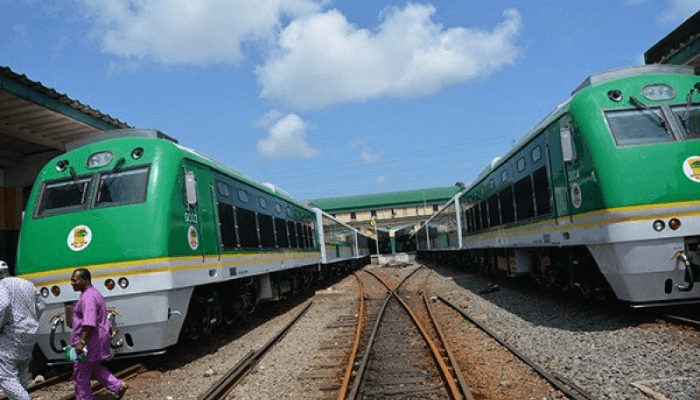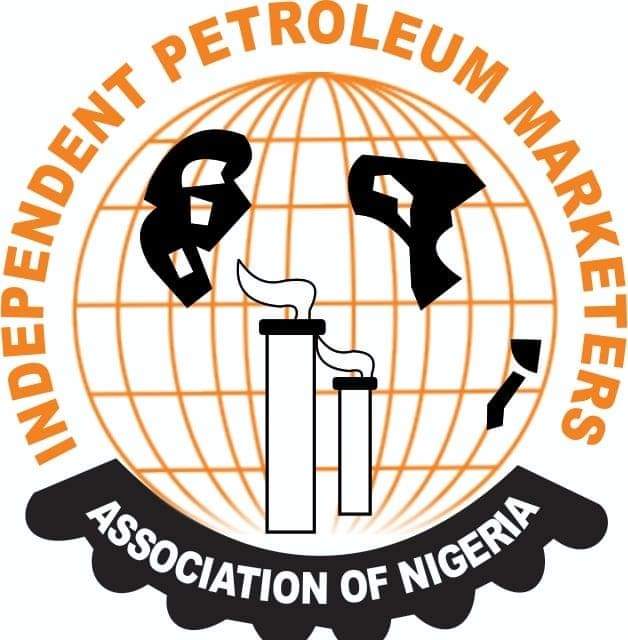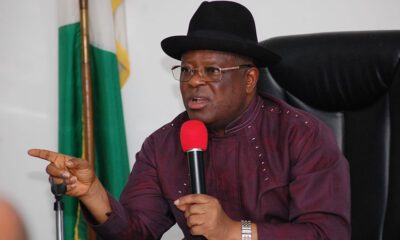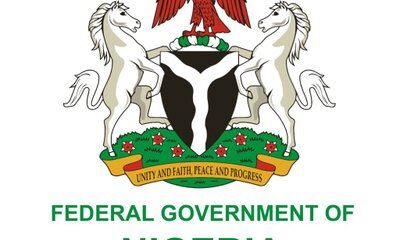News
FG breaks new ground, begins implementation of Expatriates Employment Levy on March 15, promises economic boost

Nigeria is set to begin implementation of the Expatriates Employment Levy, a move expected to not only generate revenue but also promote local employment opportunities and skill development.
The levy, scheduled to commence on Friday, March 15th, 2024, comes as part of the government’s effort to bolster the nation’s economy and empower its workforce.
President Bola Tinubu last Tuesday launched the EEL handbook in the Council Chamber of the State House in Abuja at a well-attended event that was graced by the Minister of Interior, Hon Olubunmi Tunji-Ojo and Chairman of the Senate Committee on Interior, Senator Adams Oshiomhole, among other dignitaries.
Initiated by the Federal Government before involving technical partners, the government now mandates companies employing expatriates in Nigeria to pay a levy per expatriate employee per annum.
This levy aims to encourage local hiring practices and investment in domestic talent while also fostering skill transfer from expatriates to Nigerian employees.
The Ministry of Interior will oversee the initiative through its implementing agency-Nigeria Immigration Service [NIS].
In addition to the economic benefits, the levy is anticipated to address concerns surrounding the over-reliance on foreign expertise in various sectors.
By incentivizing the employment of local talent, the government aims to create a more sustainable and inclusive economy, reducing dependency on external sources for specialized skills.
The implementation of the Expatriates Employment Levy aligns with Nigeria’s broader economic agenda, which prioritizes indigenous capacity building and job creation.
It reflects a strategic shift towards fostering a conducive environment for local businesses to thrive and contribute to national development.
Furthermore, the levy is expected to provide a significant boost to government revenue streams, which can be allocated towards critical sectors such as education, healthcare, and infrastructure development.
This injection of funds has the potential to drive socio-economic progress and enhance the quality of life for Nigerians across the country.
Companies operating in Nigeria are urged to ensure compliance with the Expatriates Employment Levy requirements.
The deadline for compliance is set for Monday, April 15th, 2024.
Failure to adhere to the levy regulations may result in penalties or legal repercussions, emphasizing the importance of timely and accurate compliance.
As Nigeria prepares to implement the Expatriates Employment Levy, stakeholders across various sectors express optimism about its potential to catalyze positive change in the nation’s economy.
With a focus on promoting local talent and fostering sustainable growth, the levy represents a significant step towards achieving long-term prosperity and self-reliance for Nigeria and its citizens.
In recent years, Nigeria has witnessed a growing influx of expatriates into its workforce, driven by globalization, foreign investment, and specialized skills requirements.
To regulate this trend and ensure equitable opportunities for its citizens, the Nigerian government has decided to fully implement the EEL.
The EEL serves as a mechanism to encourage the recruitment and development of local talent.
By imposing levies on companies employing expatriates, it incentivizes organizations to prioritize the training and employment of Nigerian citizens.
This emphasis on local workforce development not only reduces dependency on foreign labour but also contributes to skill enhancement, job creation, and empowerment within the Nigerian community.
Revenue generated through the EEL will bolster the government’s financial capacity to invest in critical sectors such as education, healthcare, infrastructure, and social welfare programmes.
These investments will stimulate economic growth, enhance productivity, and create a conducive environment for sustainable development.
Additionally, by channeling funds into local initiatives, the EEL fosters entrepreneurship, innovation, and small business development, thereby nurturing a robust and diversified economy.
The presence of expatriates in key sectors facilitates the transfer of specialized skills, knowledge, and best practices to the local workforce.
Through mentorship, training programmes, and collaborative projects, Nigerian professionals have the opportunity to gain invaluable insights and expertise, which can enhance their competencies and competitiveness in the global marketplace.
This knowledge exchange not only enriches the skill pool within the country but also contributes to the overall development of human capital.
With this influx even low-skill jobs are being denied to Nigerian citizens, including chefs, restaurant, floor managers, supermarket shop floor salesmen, basic sales functions, bricklaying, roadworks, etc
The EEL serves as a regulatory mechanism to oversee the influx of expatriates and ensure compliance with labour laws and immigration policies.
By requiring companies to obtain permits and pay levies for employing foreign nationals, the government can monitor the quality and quantity of expatriate workers entering the country.
This oversight helps prevent abuse, exploitation, and unfair competition in the labour market, while also safeguarding the rights and interests of Nigerian workers.
In sectors such as oil and gas, construction, and telecommunications, where foreign expertise is often required, the EEL encourages companies to prioritize the utilization of local goods, services, and resources through the implementation of local content policies.
By promoting the participation of Nigerian businesses and professionals in major projects and contracts, the EEL fosters economic inclusion, industrialization, and value addition within strategic sectors, thereby reducing dependency on imports and foreign expertise.
The Expatriates Employment Levy in Nigeria is not merely a fiscal measure but a strategic tool for promoting national development, empowering the local workforce, and fostering economic self-reliance.
By prioritizing the recruitment, training, and retention of Nigerian talent, while facilitating skill transfer, knowledge exchange, and regulatory oversight, the EEL contributes to the creation of a more inclusive, competitive, and resilient economy.
As Nigeria continues to navigate the complexities of globalization and economic transformation, the EEL remains a vital instrument for shaping a prosperous and sustainable future for all its citizens.
Recall that at the launch of the EEL handbook in Abuja, President Tinubu had said that
“I’ve been further assured that the project has the capacity of plugging loopholes and gaps that have bedevilled the country in dealing with security challenges, movement of foreigners in and out of the country.
“Interestingly, this scheme will wield the dual fold of revenue generation as well as addressing employment challenges as salary gaps attendant in the remuneration of expatriate workers as compared with their Nigerian counterparts.:
The President, who lauded the Minister of Interior, Hon Olubunmi Tunji-Ojo, for the various progressive innovations he had introduced into the job, earning the government accolades from home and abroad, described the EEL scheme as another game changer.
He expressed excitement over the various positive advantages of the scheme, including better employment opportunities for Nigerians with foreign companies and bridging of the wage gap between Nigerian employees and expatriates in foreign companies operation in Nigeria.
President Tinubu however warned that the operators of the scheme should be careful not to turn it into another bureaucratic bottleneck, which is capable of frustrating potential investors.
“I declare my support for the Expatriate Employment Levy scheme and I will continue to encourage the operators, practitioners of immigration matters and expatriate quotas, but don’t use it as a bottleneck, don’t use it to frustrate potential investors.
“There will be clear lines of implementation and effective acceleration of aims and objectives of this programme. Immigration matters and expatriate quotas, and relevant stakeholders, have to be effectively guided to make Nigeria the focus of the objective of this EEL. Therefore, it is my honour that the handbook of the Expatriate Employment Levy is hereby launched”, he said.
Earlier in his remarks, Minister of Interior, Tunji-Ojo, highlighted some of the features in the EEL scheme, built in to create employment opportunities and competitive advantages for Nigerian workers working in foreign companies in the country.
News
CHI Limited rewards outstanding trade partners at annual conference


Chivita|Hollandia (CHI Limited) leading fruit juice and value-added dairy manufacturer in Nigeria has rewarded its long standing distributors at the recently held 2024 Distributor Conference. The event with the theme, “Break Boundaries Exceed Expectations” served as a platform to recognise and reward the exceptional contribution of the distributors and wholesalers who play a critical role in Chivita|Hollandia (CHI Limited) success and business goals for the year.
The Distributor Conference was held in two sessions. While the morning session featured keynote addresses, industry insights and brand immersion experience, the evening session was a cultural display of elegance and funfair that culminated in the award presentation and recognition of the contribution the trade partners made to the company in the 2023 year under review.
A key highlight of the event was the award ceremony which acknowledged outstanding trade partners in various regions across the country. The awards recognised commitment, dedication, and outstanding performance in areas of sales growth, brand promotion, and market expansion.
Managing Director, Chivita|Hollandia (CHI Limited), Eelco Weber stated that the company’s success story is incomplete without the strong partnerships it has built with trade partners.
“Today, we celebrate not only the achievements, but the collaborative spirit that has made our growth possible,” he said.
Chief Commercial Officer, Chivita|Hollandia (CHI Limited), Bola Arotiowa in his statement revealed that, the event which was first of its kind will continue to be an annual meeting to enable the company work more closely with its distributors, share insights and action points, help the trade partners familiarise themselves with the company’s goals and objectives for each year, and serve as a driver for mutual success.
“Our distributors are the backbone of Chivita|Hollandia (CHI Limited). Their relentless efforts in distributing our products, promoting our brands, and expanding our reach across the nation is truly commendable.
“As the bridge between us and our valued consumers, it is very important to reward their hard work and dedication for being an essential part of the Chivita|Hollandia (CHI Limited) family. Together, we will continue to deliver great products to our consumers which in turn will deliver value to them,” Mr. Arotiowa added.
Speaking at the conference, Chief Executive Officer of Smabirm Nigeria Limited, HajiyaBilikisuSaida, who won the Outstanding Distributor of the Year in North 1 region, and got a reward of two million Naira worth of Chivita|Hollandia (CHI Limited) productsexpressed delight at the company’s recognition, and stated that the awards served as a way to inspire distributors to do more and put in more effort, which in turn would help both the distributors and the company to grow.
Other outstanding performance distributors of the year rewarded with a two million Naira worth of Chivita|Hollandia (CHI Limited) stock include, Sunny Chuks Limited for East 1 region, MRS FA & Sons Limited for East 2 region, Hussakas Ventures for North 2 region, Rookee 1388 Ventures for Lagos 1 region, Pik N Pil Ventures for Lagos 2 region, FaithJoe Event Management Limited for West 1 region, and Progress Family Nigeria Enterprise for West 2 region.
The annual Distributors Conference aims to strengthen the bond between Chivita|Hollandia (CHI Limited) and its trade partners. This collaborative approach fosters mutual growth and ensures the continued success of the brands in the Nigerian market.
News
FG inaugurates Port Harcourt-Aba rail project, train service begins


The Federal Government has inaugurated the 6.2 kilometre (KM) Port Harcourt – Aba railway project, marking the start of train operations between Abia and Rivers.
The Minister of Transportation, Sen. Saidu Alkali, who said this at a ceremony in Port Harcourt on Tuesday, noted
that the project was a crucial part of the 1,443km Port Harcourt to Maiduguri narrow gauge rail project.
He said that the Port Harcourt to Aba section of the project was the initial part of the Eastern narrow-gauge railway, aiming to connect five geo-political zones of the country.
“The Federal Government is pleased to inaugurate the train service from Port Harcourt to Aba, a key priority area of President Bola Tinubu’s administration.
“We are grateful to God for the completion of the Port Harcourt to Aba section, which will bring succour to the people.
“The Eastern narrow gauge covers five geo-political zones of the country, including South-South, South-East, North-Central, North- West and North-East,” he said.
Alkali said that following the completion of the first segment and the start of commercial operations, work on the remaining part of the rail line would begin immediately.
“Shortly, we will take a train ride from Port Harcourt to Aba, which means that from today, passenger train service has commenced.
“We will continue the project from Aba to Enugu and from Port Harcourt to both Onne and Port Harcourt seaports for freight services.
“The ministry is currently in discussion with an investor to convert our locomotive from diesel to Compressed Natural Gas (CNG) to reduce transportation cost further,” he said.
The minister assured Nigerians that arrangements were being made with security agencies to ensure adequate security along the rail routes.
He also announced free train rides from Port Harcourt to Aba between May 1 to May 4.
“The train will depart from Port Harcourt to Aba at 8 a.m. daily, while it will leave Aba to Port Harcourt at 3 p.m. daily.
“Full commercial operations will resume on May 7, 2024,” he said.
Muhammad Zakari, the ministry’s Director of Press and Public Relations, said that the project when completed would boost trade, enhance mobility and connectivity between the Southern and Northern part of the country.
He said that the segment of the project was contracted to Messrs China Civil Engineering and Construction Company (CCECC) on Oct. 16, 2020, with a 36-month completion timeline.
“But due to technical and contractual issues, the project commenced in March 2022, involving the construction of modern stations and procurement of new rolling stock.
“The railway line will also connect the seaports of Onne, Bonny, and Port Harcourt to facilitate evacuation of goods and sundry freight through the Eastern corridor,” he said.
Zakari emphasised that upon completing the Port Harcourt to Aba railway, the Federal Government would push CCECC to expedite the completion of the 181km Aba-Enugu section of the project.
He said that he was optimistic that inauguration of the Port Harcourt to Aba rail service would stimulate economic activities between the South-South and South-East zones of the country.
News
Fuel Scarcity: IPMAN threatens shutdown over non-payment of bridging claims


The Independent Petroleum Marketers Association of Nigeria (IPMAN) Depot Chairmen Forum, has exonerated its members from the current fuel scarcity in the country.
According to IPMAN, the is caused by its inability to source petroleum products.
The IPMAN Depot Chairmen Forum also threatened to withdraw its services over non-payment of N200 billion bridging claims by the Nigerian Midstream and Downstream Petroleum Regulatory Authority (NMDPRA) to its members, since 2022.
Alhaji Yahaya Alhassan, the Chairman, of the Forum said this while briefing newsmen on Tuesday in Abuja.
Alhassan said the Nigerian National Petroleum Company Limited (NNPC Ltd.) was the sole importer of the product, but the marketers could not source products from NNPC Ltd. deport, rather from the private depots at high rate.
“We cannot buy fuel from the private depots at N950 and transport the product from Lagos to the North and other parts of the country with N2 million and still sell it at N900 or N1, 000.
“It is expedient for us to state that we are more pained by the non-availability of petroleum products in the country, which has given rise to another round of untold hardship for Nigerians.
“Contrary to claims that IPMAN members are hoarding Premium Motor Spirit (PMS) known as fuel, we would like to categorically state that PMS scarcity is wholly triggered by inability to get fuel from NNPC and not IPMAN,’’ he said.
Meanwhile, the NNPC Ltd. Chief Corporate Communications Officer, Olufemi Soneye said the disruption was due to logistical issues which had since been resolved.
“We currently have an availability of products exceeding 1.5 billion litres, which can last for at least 30 days. Unfortunately, we experienced a three-day disruption in distribution due to logistical issues, which has since been resolved.
“However, as you know, overcoming such disruptions typically requires double the amount of time to return to normal operations.
“Some folks are taking advantage of this situation to maximise profits. Thankfully, product scarcity has been minimal lately, but these folks might be exploiting the situation for unwarranted gain,’’ Soneye said.
He however, said the lines would clear out soon.
On the non-payment of bridging claims, the IPMAN forum said it was distressed and depressed by the laidback attitude of the NMDPRA towards the survival its member’s businesses, arising from its refusal in paying the claims.
“It is with deep frustration that we have assembled here today as the IPMAN Depot Chairmen Forum. It is also disheartening to note that some of our members have completely shut down businesses and retrenched employees.
“As businessmen and women, our members acquired bank loans to keep their fuel retail outlets running on a daily basis across the nooks and crannies of Nigeria in order to serve the teeming population of Nigerians,’’ Alhassan said.
He recalled that Sen. Heineken Lokpobiri, Minister of State Petroleum Resources (Oil), at a stakeholders meeting in February mandated the NMDPRA management to clear the entire debt in 40 days.
“However, today, we have crossed the 40 days’ time lapse given to the NMDPRA to clear the debt, and it is shameful to state that only the paltry sum of N13 billion has been paid, ignoring minister’s directive.
“We are not happy with the indiscriminate increment in the issuance and renewal of Sales and Storage Licence, by the NMDPRA, and the subsequent delays in acquiring the licence, which our members are recently subjected to.
“We are also calling on President Bola Tinubu to look into this unwholesome figure which is highly detrimental to our business and reverse it forthwith, as it is bound to impact negatively on the masses.
“We are poised to take far reaching decisions that may cripple the supply and sales of petroleum products across Nigeria if our demands are not met within the shortest period of time.
“We are collectively prepared to withdraw our services, shut down every single outlet, and suspend lifting of products forthwith till our demands are fully met, and the consequences will be terrible.
“We call on our members to however remain resolute and law abiding, even as we draw close to the immediate ultimatum for our demands to be met by the NMDPRA,’’ the chairman said.
Reacting to the IPMAN’s claims, the Acting Head, Corporate Communications, NMDPRA, Seiyefa Osanebi said the bridging claims payment was ongoing.
“The bridging claims payment is always an ongoing process,” she said.
-
capital market2 years ago
Rt.briscoe, FBNH, Others halts negative performance of stock market
-
Finance3 months ago
Court orders Sen. Victor Umeh to repay N136m bank debt to AMCON
-



 Abuja Update2 months ago
Abuja Update2 months agoUNDP, FG partnership needed to achieve inclusion, equity- Minister
-
Abuja Update1 month ago
Banks drive stock market performance with N147bn gain
-



 Business1 week ago
Business1 week agoTingo Group unveils Tingo Electric, Tingo Cola drink at Lagos launch
-



 Health2 weeks ago
Health2 weeks agoCapacity training will reduce migration of health workers- NPHCDA
-



 Infotech4 weeks ago
Infotech4 weeks agoWorld Backup Day: NITDA urges Nigerians to ensure backup of data
-
News4 months ago
Oil thieves sponsoring malicious media campaign against Navy – Spokesman













